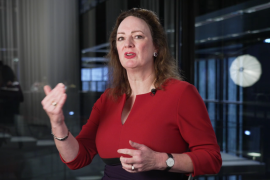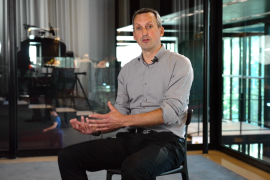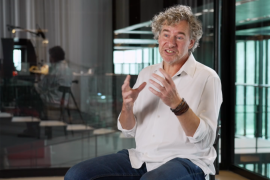Recognition and Rewards
At UU, we recognize everyone's contribution to the organization and to our shared goals. All employees work together toward the mission and goals of Utrecht University (UU). This means we work together across functions, departments and disciplines. We are working towards a better world. Our contributions to this goal vary but all our contributions are important.
Recognition and rewards is not only about how we have set up our organization but also about the way we work. It is about team spirit and cooperation, development and (personal) leadership. Sometimes it's about recognition in the form of the next career step. But more often it is about the way we work together. Employees that are seen for their efforts and that are given room to develop themselves.
We want to provide room to recognize and reward teams and individuals, with consideration for the diversity of our work and its outcomes. The strict division into academic staff (WP) and support and administrative staff (OBP) does not fit with this approach. Therefore, starting from the 2023/24 academic year, we will work from a single perspective: we see all staff as employees of the university, university staff (UP).
In these videos, colleagues share how they work on Recognition & Rewards every day.
In practice, this is going to mean that we will collaborate more often as UP (think project groups or UU's training offerings); that we will rely more often on your role or expertise that you bring to a particular context rather than your formal position. The possibility of positions with part scientific and part other tasks (think research IT, analytical laboratory work or teaching innovation) is going to be better facilitated by the UU.
Conversation guide
To help teams put recognition and appreciation into practice, UU developed this conversation guide.
Project leaders Recognition and rewards
Recognition and rewards Fellows
- Prof dr. Sonja Bekker (Faculty of Law, Economics and Governance)
- Prof. dr. Daniel Cohnitz, Professor Humanities, Theoretical Philosophy
- Dr. Martijn Huysmans (Faculty of Law, Economics and Governance)
- Prof. dr. Manon Kluijtmans, (Vice Rector Teaching and Learning & Academic Director of the Centre for Academic Teaching)
- Prof. dr. Dennis Klomp (UMC Utrecht)
- Dr. Christel Lutz, (Education Institute Director, Utrecht University College)
- Dr. Inge Stegeman (UMC Utrecht)
- Stefanie Vrancken, (Policy Advisor)
- Dr. Reine van der Wal, (Assistant Professor, Psychology - Social, Health and Organisational Psychology)
- Anneke Heycop ten Ham, (Faculty of Veterinary Medicine HR department)
- Wieke Eefting, (programme leader, Veterinary Medicine)
- Prof. dr. Bas Raaymakers (UMC Utrecht)
- Roxy van Zelst (Student-assistent)
- Jeroen Bosman (Open Science specialist, University Library)
- Ing. Claudia Cozijnsen (Beleidsmedewerker)
- Prof. dr. Toine Egberts (Professor Pharmaceutical sciences)
- Prof dr. Koen Frenken (Faculty of Geosciences)
- Dr Aletta Huizenga (University Corporate Offices)
- Prof. dr. Femke Broere (Faculty of Veterinary)




